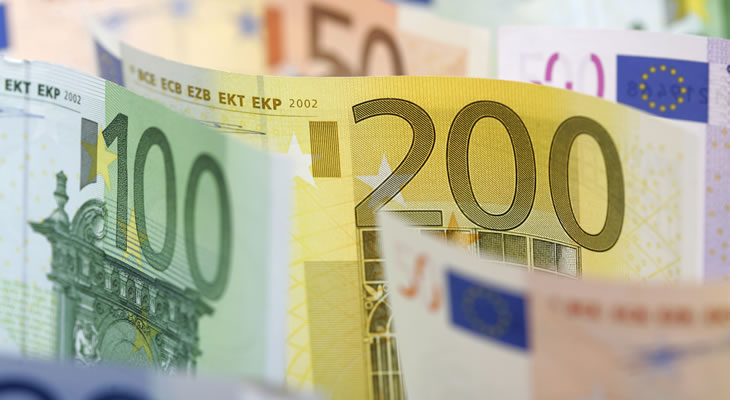As the latest opinion polls pointed towards centrist candidate Emmanuel Macron emerging victorious in the French presidential election the mood towards the Euro improved.
While the race remains tight markets are hopeful that outspokenly Eurosceptic National Front leader Marine Le Pen will not pull off a fresh populist upset.
Even so, with a significant proportion of voters reportedly undecided ahead of Sunday’s vote the outlook for the Euro US Dollar exchange rate remains volatile.
A sharp increase in Eurozone construction output also offered a boost to the single currency, with output rebounding from -5.1% to 7.1% on the year.
This suggested that the currency union remains relatively resilient in spite of the current atmosphere of political uncertainty, even though this is unlikely to alter the outlook of the European Central Bank (ECB).
The EUR USD exchange rate could extend its gains further if April’s Eurozone consumer confidence index shows an improvement in domestic sentiment.
As analysts at Danske Bank noted:
‘Decent employment growth continues to support increasing consumer confidence, which we expect to see increased to -4.1 in April. Like financial and business sentiment, consumer confidence has also proved fairly resistant to political uncertainty, so we expect it to continue on an upward trend despite the uncertain political climate.’
However, if sentiment fails to pick up as anticipated this could encourage investors to sell out of the Euro ahead of the weekend.
The appeal of the US Dollar has been more limited in recent days thanks to increasing doubts as to whether the Federal Reserve will raise interest rates again in the near future.
Market odds for a June rate hike fell from more than 60% to just 44% in the latest survey by Bloomberg, with policymakers expected to take a more gradual approach to monetary policy tightening.
Recent US data has done little to encourage confidence in the outlook of the world’s largest economy, with both the manufacturing sector and housing market showing signs of slowing.
With the Trump administration having expressed a preference for lower interest rates, contrary to campaign rhetoric, the Fed seems less likely to pursue any particularly aggressive pace of interest rate hikes in the near future.
A weaker leading indicators index for March could add to the bearish mood of the US Dollar, with markets unlikely to welcome any further signs of softening economic growth.
Even so, if global geopolitical tensions over North Korea or Syria mount further then a resurgence in safe-haven demand could see the EUR USD exchange rate return to a downtrend.


Comments are closed.